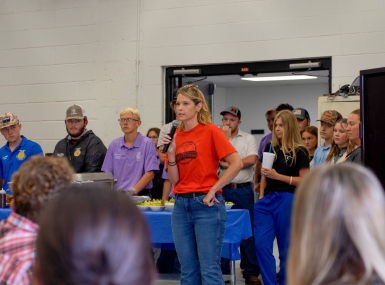House Passes National Apprenticeship Act of 2020
Upcoming Events
Related News

Key Takeaways
On November 20, the U.S. House of Representatives passed the National Apprenticeship Act of 2020 (H.R. 8294) by a vote of 246 to 140. The legislation would authorize over $3.5 billion over 5 years, including $3 billion in grants, to expand registered apprenticeships across the country. It aims to strengthen the registered apprenticeship system, create apprenticeships in nontraditional industries such as information technology and health care while also encouraging employer participation in registered apprenticeship programs. As counties grapple with the economic impacts of the coronavirus pandemic, new and expanded training and employment opportunities for county residents are of critical importance.
Counties play an important role in providing access to apprenticeships and efforts to expand employment opportunities are supported by counties. It would create 1 million new apprenticeships as well as $10.6 billion in net benefits, which could potentially aid counties struggling with pandemic-related job losses.
Additionally, the legislation would establish a $3 billion grant program, which would award funds to entities who partner with relevant stakeholders, including local workforce development boards or agencies and community-based organizations, for several activities, including:
- Creating or expanding apprenticeship programs, including in nontraditional industries such as information technology and health care
- Encouraging employer participation in programs targeting 1) individuals with barriers to employment; 2) high-need social-service industries; 3) justice-involved individuals; and 4) small- and medium-sized employers
- Strengthening alignment between apprenticeship programs and secondary and postsecondary education
Registered apprenticeships (RAs) are programs authorized by the Department of Labor (DOL) or a state apprenticeship agency (SAA) as meeting certain qualifications. Employers who participate in RA programs are eligible for tax credits, technical assistance and additional federal resources. According to DOL data referenced by the House Education and Labor Committee, 94 percent of apprentices who complete an RA are employed after finishing the program, but only 0.3 percent of the overall workforce has completed an apprenticeship. The legislation aims to increase participation in the RA system by expanding opportunities and access to apprenticeships, youth apprenticeships, and pre-apprenticeships.
Notably, however, the bill does not authorize Industry-Recognized Apprenticeship Programs (IRAPs) supported by Republicans and the Trump Administration. IRAPs are developed or operated by employers and recognized by a third-party entity. DOL published a final rule in March 2020 formally establishing the IRAP system.
Movement on the bill in the Senate is unlikely during the lame duck session, however efforts will likely resume during the 117th Congress. As the legislation is considered, flexibility within apprenticeship programs should be maintained so that county residents are able to fully realize the potential of these programs.
Related News

County leadership guides shared prosperity
There’s no chicken-or-egg debate: Economic mobility is not just a byproduct of growth — it is the result of intentional county governance.

Inland port offers opportunity for Hertford County, N.C.
Hertford County, N.C. doesn’t have a lighthouse, but that hasn’t stopped its economic future from shining thanks to what became known as Project Green Lantern.

Chamber of commerce program helps keep workers on the job
Audrain County, Mo.'s Workforce Resource Assistance Program has helped employers keep staff in place, reducing turnover and promoting stability.
